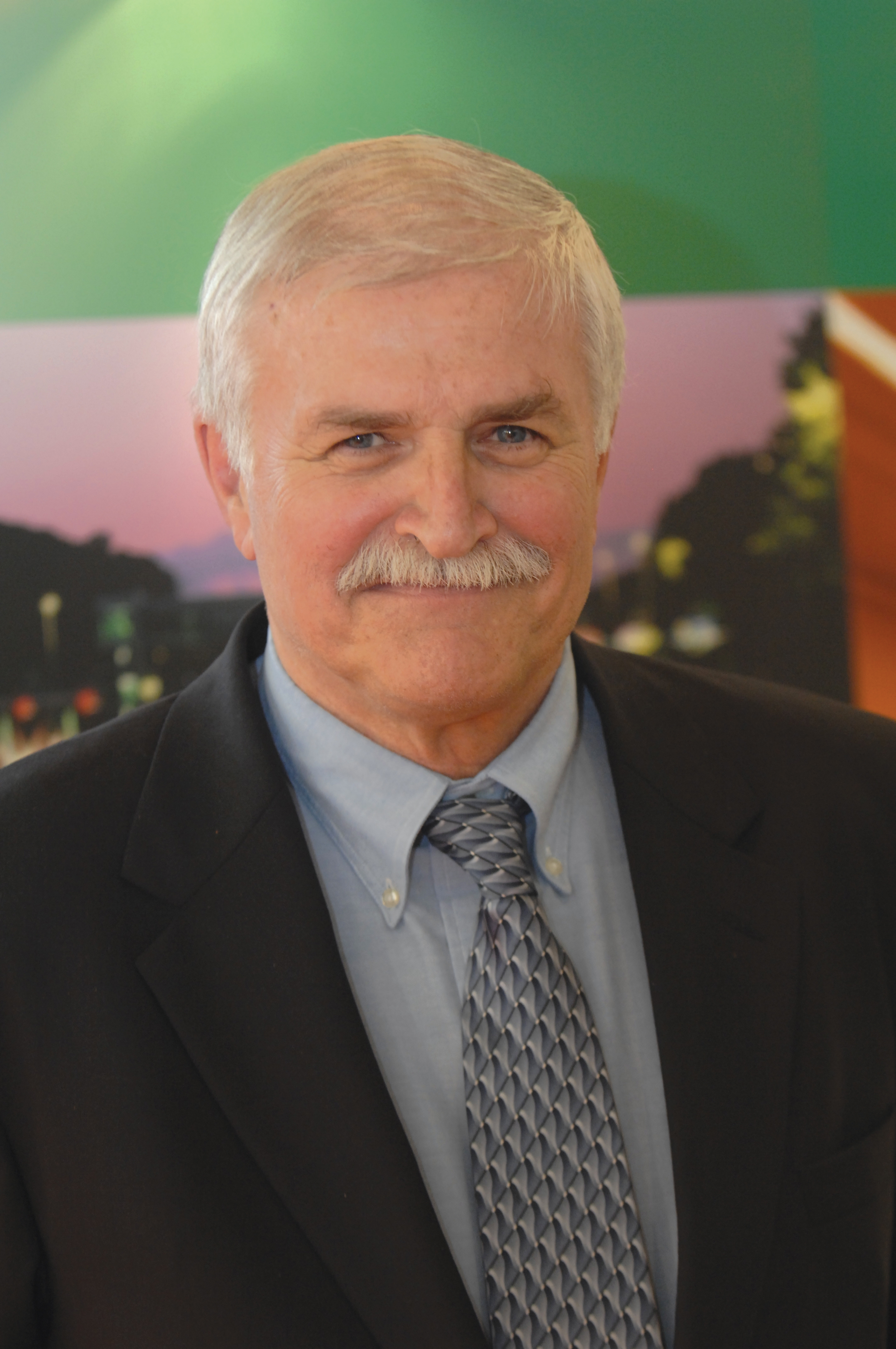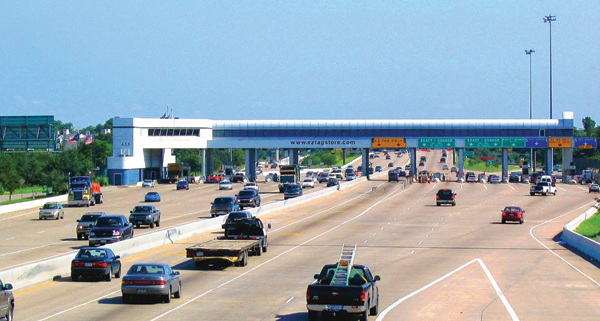Manfred Rietsch, group president of Federal Signal Technologies (FST), talks about the recent acquisitions forming FST and the organisation's plans for the future. "Our philosophy is going to be about open access" Federal Signal has been on a buying spree. An energetic policy of acquisition over the past few months has seen the company reposition itself as an end-to-end provider of Electronic Toll Collection (ETC) systems with what it states is a portfolio of proven, best-in-class technologies which will al

"Our philosophy is going to be about open access", - Manfred Rietsch
Manfred Rietsch, group president of Federal Signal Technologies (FST), talks about the recent acquisitions forming FST and the organisation's plans for the future
Federal Signal has been on a buying spree. An energetic policy of acquisition over the past few months has seen the company reposition itself as an end-to-end provider of Electronic Toll Collection (ETC) systems with what it states is a portfolio of proven, best-in-class technologies which will also enable it to compete in the wider ITS market.That's the headline grab. But if the company's premise holds true it has the potential to give the North American tolling market a radical shake-up.
Manfred Rietsch, group president, takes a precise line when asked just what will differentiate
"We have separately acquired the best of the best in the industry.
Each of the companies we have brought into the Federal Signal fold has in the past focused on a particular segment of the tolling market. As a result, they became experts.
"Bill Osborne, President and CEO of Federal Signal, had a plan: to transform Federal Signal into a high-tech company. PIPS Technology was the initial acquisition but along the way we've also divested assets which didn't fit the vision. We then focused on the parts we needed to be at the leading edge of the ETC market. We had the advantage of being able to cherry-pick who we went after. That in itself brought further advantages, in that each of our acquisitions has its own circle of customers. This opens a lot of new doors, in all senses."
One can expect the senior figures of any organisation to be so strident. It's as much a part of their jobs as anything else. However, creating a major new entity from smaller constituents can change the dynamics. Too often, smaller, successful businesses are subsumed, only to lose the very advantages which made them successful in the first place - typically, the inertia and bureaucracy of big business stifle the dynamism and creativity which first put the smaller companies on the map.
Rietsch says he is acutely aware of this: "These were all small- to medium-sized companies which thrived on customer relations. I'm going to be working very hard to maintain that and not take a 'large company' attitude.
"I want to maintain that mid-sized relationship and give customers what they want. The US market in particular is characterised by numerous technologies using lots of proprietary software and interfaces. This makes it difficult for customers to change if they're unhappy. Our philosophy is going to be about open access. We'll publish our interfaces - we're not about taking and holding hostages. So, for example, for the back office we'll provide source code as well as a 'How to' manual."
Emphasis on cost
The US tolling market has also reflected the general health of the economy in recent months. Rietsch perceives of fewer opportunities and very strong emphasis on cost-competitiveness."People are trying to maintain market share and we've seen consolidation. It's going to remain a very competitive place in which to do business for the next couple of years but we now have another, very competitive player."
His is another strident claim, in that the US tolling market has long been dominated by a small number of key suppliers and breaking in is notoriously difficult. Rietsch says he is fully aware of the faults and foibles he will have to deal with.
"It is very difficult to get into the North American market. Some of that is customer fear of the unknown. You need a resumé, something which is difficult for overseas companies to provide. If you can reference home - that is, US - projects, it has more credibility than overseas projects. It shouldn't be like that but it is and the only way in from abroad has tended to be via acquisition of indigenous companies.
"A complicating factor is that there is only a small pool of people on whom you can draw to address key personnel requirements. You're always going to see new small companies try to fight their way up the food chain. Some will succeed, some won't."
Stretching the portfolio
Among the larger US tolling system suppliers, Rietsch sees what he terms a "status quo view" of technological implementation."There's a prevailing sense of 'What we have is good enough', whereas we're going to try to be more innovative using our specialist knowledge," he explains.
"What we're also finding is that there are lots of fascinating technologies in each company which have application and synergies outside ETC. That pushes Federal Signal out into the wider ITS market, dealing in, for example, electronic vehicle recognition and maritime projects such as harbour and access control; also parking, and safety and security."
So does that place Federal Signal in a unique position, or does Rietsch consider that Federal Signal has competitors? "Of course we have competitors," he says. "There are three major competitors in the North American tolling market at present. But we differentiate ourselves by having the 'Gold Standard' technologies in the various elements which make up a complete system. We also have local presence. Will it make the other guys take notice? They already have, and I think they'll be taking a long, hard look at how they compete going forward."
Forward thinking
In the immediate future, Rietsch says we can look forward - finally - to some form of tolling interoperability in the US."We aren't there yet but people aren't just talking anymore," he says. "I'm talking in terms of a national register of license plates and transponders, and more efficient methods of enforcement with better access to DMV [Departments of Motor Vehicles] databases.
"We've already seen a move to sticker and passive tags, and we can't write off 5.9GHz. All I can say about the latter is that it's not here - yet. It's still at least three to four years down the road.
"5.9GHz is an obvious solution from a technology standpoint but it requires major infrastructure changes and a lot of money. Especially in the current climate I don't think the key agencies see a clear advantage as yet."
Timing
Economic downturn can trigger prudence in some. In others, it encourages a sense of greater opportunity. So did the current slow-down drive Federal Signal's recent activities? Rietsch says not."The timing was all down to Bill Osborne's vision. Once it got started, it was clear there couldn't be a partial solution. The acquisitions gained their own critical mass, if you will.
"It's very difficult to compete in the North American ETC market if you are a niche player. You hope and pray that requests for proposals are split up into front ends and back offices; if that doesn't happen then you have to find yourself partners. And subcontractors don't control their own destinies.
"It also gets harder, at a certain point, to grow enough to compete at the next level. To us, therefore, it was obvious we needed to find an aggressive strategy which would result in a first-league team.
"I'd say we have the package now. If you were to ask me whether any other acquisitions are being contemplated it's always very difficult to say no, but I'm content we already have the key elements."











